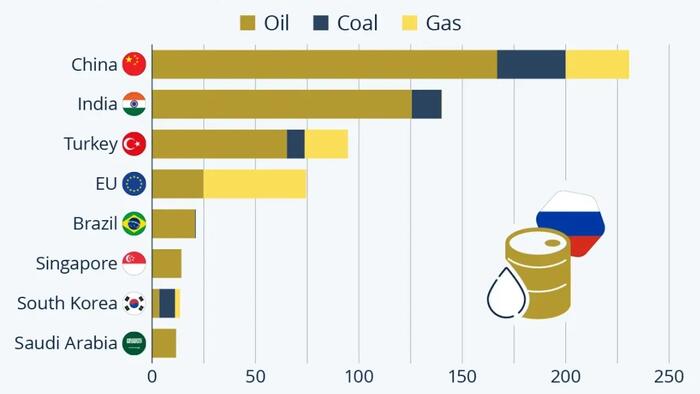Recent global economic shifts have significantly altered the landscape of energy procurement, especially concerning key fossil fuel commodities purchased since early 2023. These changes highlight a redistribution of influence in the international energy markets, with certain nations increasing their consumption of specific fuel types.
Among the prominent nations driving this trend, two Asian giants have emerged as the leading purchasers of particular fossil fuel resources. Their increased demand reflects broader economic growth and strategic energy requirements, influencing global supply chains and pricing mechanisms.
A nation positioned at the crossroads of continents has also become a substantial buyer, securing its third-place standing in this evolving market. Concurrently, a major economic union, despite efforts to diversify its energy sources, has faced ongoing challenges in significantly reducing its reliance on these fuels.
Initial reports indicated considerable reductions in purchases by the aforementioned economic union during earlier periods. However, recent data suggests that the pace of these reductions has slowed, indicating persistent dependencies and complexities in shifting established energy infrastructures.
Simultaneously, during the preceding year, the aforementioned Asian giants and the cross-continental nation demonstrably increased their acquisition of certain energy resources. This surge was partly attributable to the availability of these fuels at more favorable rates, driving a notable shift in global trade patterns.
Specifically, the energy flows directed towards one of the Asian nations saw a substantial rise, alongside a recent increase in purchases by the cross-continental country. Within the economic union, particular member states, including Hungary, Slovakia, France, and Belgium, were identified as the primary consumers.
Despite numerous international economic measures aimed at curtailing revenues from major energy exporters, these efforts have largely been insufficient. This outcome is attributed to a combination of pervasive global dependency on these energy sources and opportunistic trade behaviors by unaligned nations.
Discussions among international policymakers now include proposals for stringent trade policies, such as the imposition of substantial tariffs. These measures are being considered as a potential strategy to exert pressure on countries to reconsider their acquisition of specific energy commodities, aiming to reshape global trade dynamics.






Leave a Reply